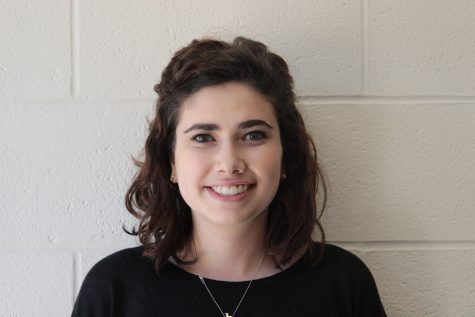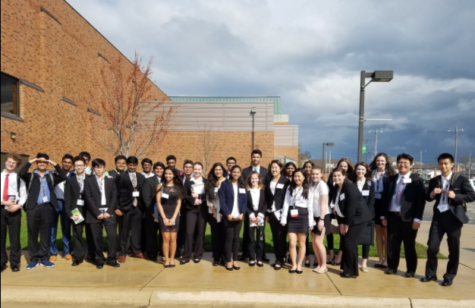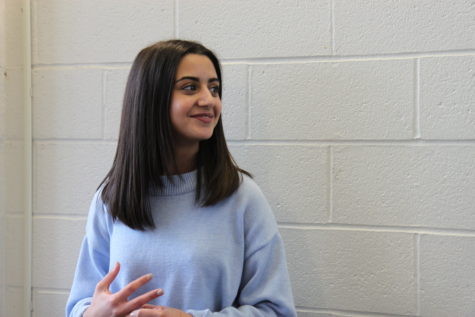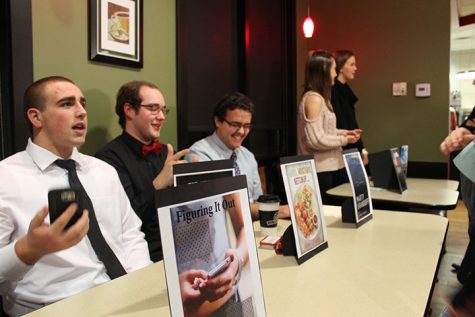Bilingual teachers, students reap benefits
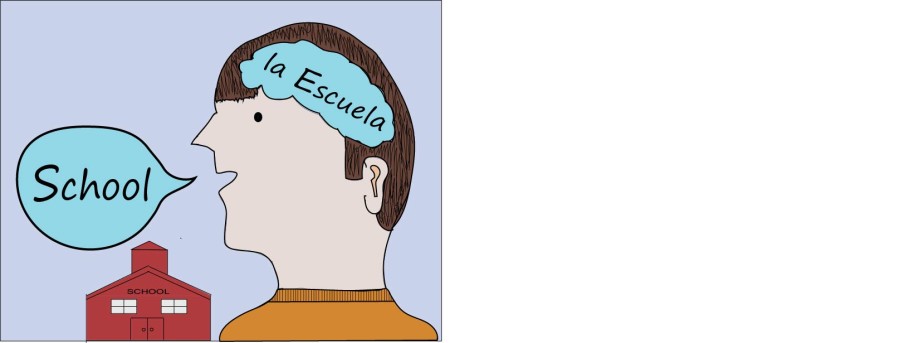 In the summer of 2009, Jocelyn Nebel, Spanish 1 and 2 teacher, stayed with a host family in Chile who spoke no English. She said every interaction with her family was a memorable one.
In the summer of 2009, Jocelyn Nebel, Spanish 1 and 2 teacher, stayed with a host family in Chile who spoke no English. She said every interaction with her family was a memorable one.
“I really developed a love for the culture and a love for the people and because of travel it makes it a lot easier when you know another language,” she said.
Nebel has been to Costa Rica, parts of Argentina, Chile, and this past summer, went to Ecuador. Through her traveling and experience with the language, Nebel has been able to see its advantages.
“You learn a lot more about your own grammar and own vocabulary,” Nebel said. “You get to interact with people and they aren’t as hesitant to talk to you and to communicate with you.”
People such as Nebel who have the ability to speak two languages, bilingualism, have a higher probability of experiencing alternative benefits. Both cultural, academic, and neurological perks can be seen.
Within the body, studies have shown in bilingual people show a delay of dementia symptoms and a greater ability to multitask.
“The brain reorganizes as a result of the extra control required to use, monitor, and switch between two languages,” Dr. John Grundy, Post-Doctoral fellow at York University, “This reorganization results in more distributed brain networks to perform tasks more efficiently.”
Referring specifically to the delay in dementia symptoms, Dr. Grundy said the bilingual brain has extra control required to switch between two languages which gives the brain more pathways to compensate for the damage dementia causes. They are then able to function normally for longer.
“Bilinguals are also generally better able to process conflicting stimuli and switch more efficiently between multiple tasks,” he said.
When researching the effects of bilingualism, doctors have monolinguals and bilinguals perform cognitive tasks on computers while they record the brain activity.
“This allows us to see what’s happening in the brain as they encounter situations in which they must deal with conflict, switch between tasks, and hold information in their minds,” Dr. Grundy said.
The more rehearsed in one’s language is, the more likely the person will be able to see the cognitive benefits. However, Dr. Grundy said that “every little bit counts.” Even a short amount of language experience can be beneficial.
Additionally, the bilingual advantage is seen across the lifespan, as early as infancy, and extends to older adulthood, but it is not as obvious in young adulthood.
“Young adults are at a peak cognitive performance and people are performing too well to see differences between monolingual and bilinguals,” Dr. Grundy said.
Arabic speaker, Zeinab Mohsen, senior, hasn’t seen much change in her abilities, but has been able to connect with more people since becoming bilingual.
When she was little, Mohsen’s parents would speak the language at home, but it wasn’t until she moved to Lebanon that she fully learned Arabic.
“You learn more about a culture and more about the people you interact with and you learn how it is for other people,” Mohsen said.
For example, she said being bilingual is beneficial when you meet someone who speaks the same language as you because it allows you to fully interact with that person. It gives you the opportunity to learn their life story and what they may be going through.
Academically, she said it gives her an advantage when trying to remember school work, for she translates the information to Arabic.
Alternatively, Armenian speaker Leeza Kabbengijan, freshman doesn’t experience a direct correlation between her schoolwork and her ability to speak two languages; however, she does encounter the benefit when she travels.
“When I leave the country to visit my family I can communicate more fluently and share and express ideas with them,” Kabbendijan said.
When she grows older, Kabbendijan plans to pass on the bilingual tradition to her children. She wants her future kids to be able to also say that they can speak two languages and are able to connect with their Armenian relatives.
Another bilingual person, Della Thompson, French 3,4 and AP French teacher, was 15 when she began to learn French. Thompson said through travel to France, her career as a French teacher and the connections with French people, the ability of knowing two languages has shaped her life. After learning French, she was able to greater appreciate her own culture as well as the one she entered.
“In French we have a saying, the man who knows two languages is worth two men because you can live in two different cultures,” Thompson. “Learning another language is more than the words.”
Your donation will support the student journalists of Marquette High School. Your contribution will allow us to purchase equipment and cover our annual website hosting costs. You may become a PATRON by making a donation at one of these levels: White/$30, Green/$50, Blue/$100. Patron names will be published in the print newsmagazine, on the website and once per quarter on our social media accounts.



